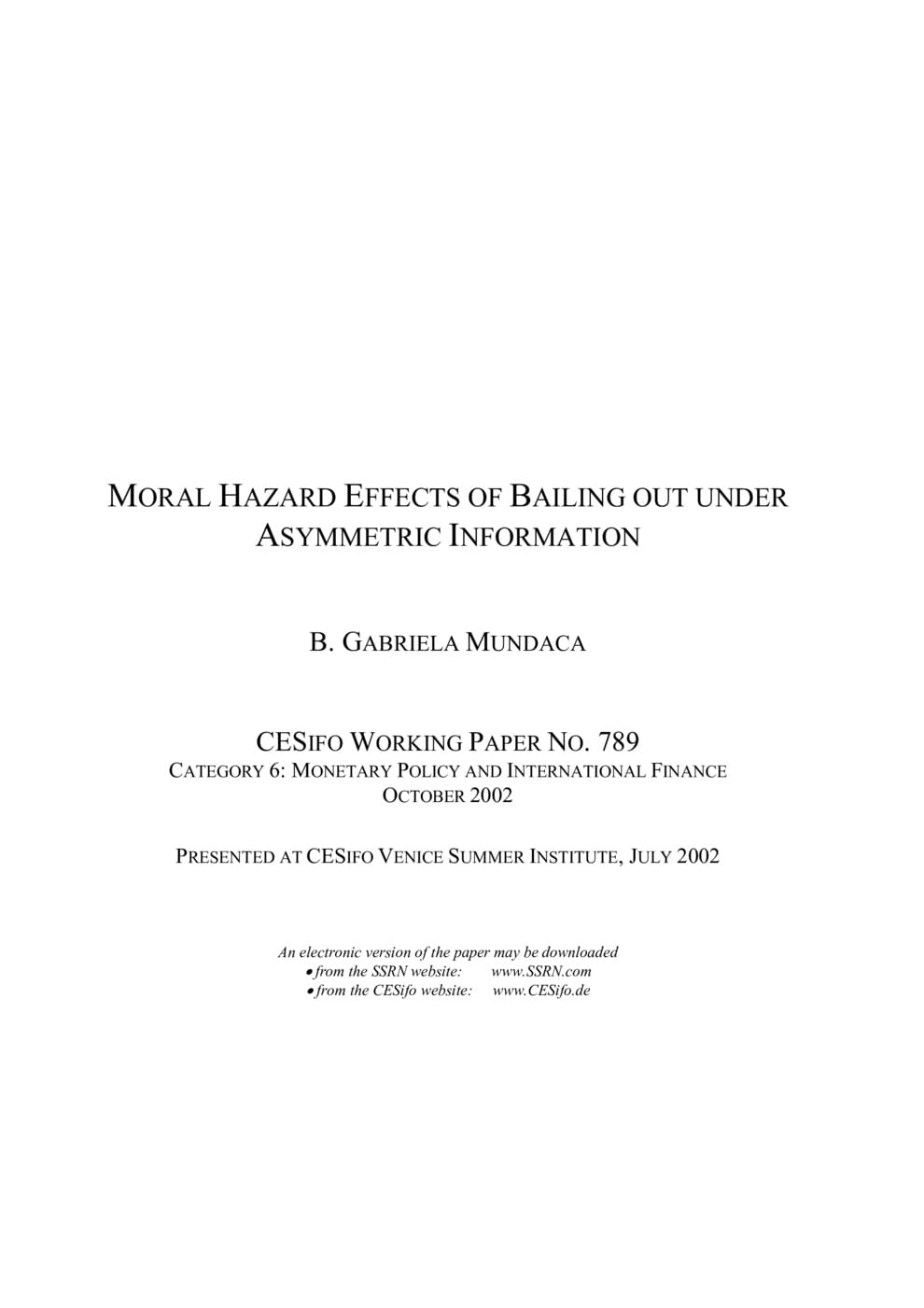Moral Hazard Effects of Bailing out under Asymmetric Information
CESifo, Muncih, 2002
CESifo Working Paper No. 789

With a four-stage sequential game model, we study how bailouts ameliorate the effects of liquidation on fundamentals, reduce the likelihood of currency crises and affect the financial sector's (non-observable) effort. In stage 1, exchange rate regime is announced and all agents receive probabilistic information that a shock may occur in stage 4. Here, the government can commit to an optimal bailout or may wait until stage 4 when a bad shock may occur. The private sector in stage 2 forms exchange rate expectations, and decides on investments and effort. In stage 3, the government faces costs due to expectations of devaluation and liquidation, and may decide to pre-emptively abandon its exchange rate policy. We show that commitment decisions have very important implications for the agents' optimal decisions.